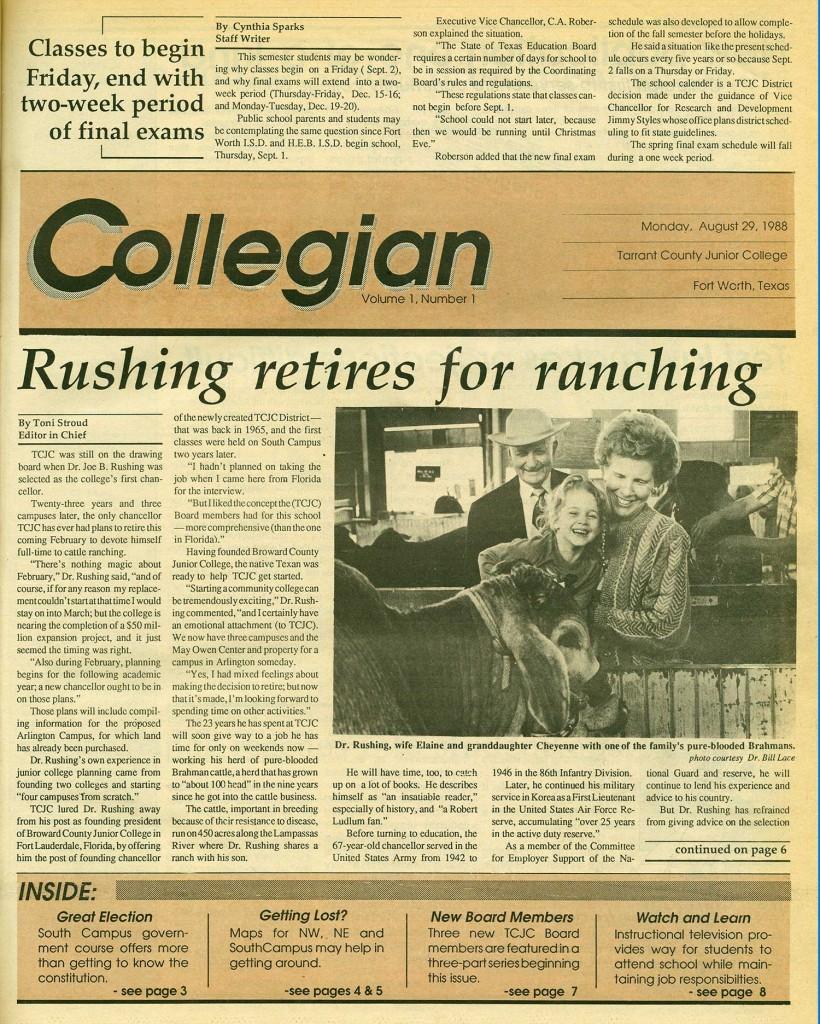
By Tiffany Wade/reporter
Many TCC students who work, take care of a family and carry a full courseload at school often get overwhelmed trying to juggle both school and personal life. When that happens, quite a few students consider dropping out, but that may not be the right move.
“We have many programs set in place to help students be successful,” said TR counseling director Louann Schulze.
However, a survey of 50 students on different TCC campuses showed that 64 percent didn’t know what services the college offered to help students when faced with problems outside of school.
Schulze said the new First Time in College program requires students to meet with advisors upon enrollment and throughout the remainder of the school year.
“We want students to know that we are here,” she said. “If you start and never see one of us, then no, you may not know what to do when faced with the difficult decision of dropping out.”
Having worked in higher education for 30 years, Schulze acknowledges that student success not only lies with the student but starts with the staff as well.
“Here at Trinity River, when we hire people, we talk to them about the philosophy of this campus,” she said. “I’m not saying that everyone we’ve hired have been perfect angels, but it makes a difference when you’re able to start with a good group of people.”
She said she wishes more students would come to them when they are having problems.
“It’s an individual choice, but our counselors are available to help them sort through everything,” she said. “Yes, some students may need to drop a class or possibly more, but it still may not be the remedy to everything else. Either way, we never want to just write anybody off.”
J.D. Hawkins, a SE science major, disagrees. He said he once dropped a physics class because his professor was the one who suggested it. After doing so, he felt like dropping out altogether.
“She saw that I was struggling with some personal issues and told me I should just drop before it got too late,” he said.
Hawkins said one problem is that many students think teachers aren’t compassionate enough when students are faced with issues that could potentially cause them to drop.
“You get to a point where you just don’t care anymore because you think the professor doesn’t either,” he said. “You have so much going on outside of the classroom, and you’ve tried so hard, but you end up extremely stressed out thinking there is no point going on. And one teacher can make a big difference in whether you do or not.”
Some TCC professors say just the opposite. They believe it is best that students talk to them before deciding to drop in case something can be done.
“Despite what students think, we do care and never want to see a student drop,” said SE government instructor Marilyn Murphy. “I try to do everything in my power to help my students succeed in and outside of the classroom, and I like to think other professors do too.”
Terry Aaron, SE continuing education director, said her department can see anywhere from 10-15 students per week who seek their advice because they want to drop out.
“When students come to my office saying they want to give up, it’s mostly because they are very tired and burnt out,” she said. “Many times they have no support system, and they already have so much going on outside of school as it is.”
Aaron, who had her first child at the age of 16, knows firsthand what it is like to get burned out because of responsibilities outside of school.
“I had a family to take care of on top of having to go to school and work, and it isn’t easy,” she said. “Of course, I eventually finished, but a strong support system was necessary.”
First-year distance learning student Jamesha Duncan agrees with Aaron.
“I thought because I would be taking classes online, it would be more convenient for me to balance everything,” she said. “I’m a good student, but it still was overwhelming for me, and I didn’t know how to handle it. I thought the answer was to just drop out.”
Duncan said during a mentoring summit on campus, she met a few students in similar situations and some helpful staff.
“I assumed I was the only one going through something, and being able to connect with others, especially TCC employees, was a good thing,” she said. “Now, if I ever feel like giving up, I call them, and they motivate me to keep pushing forward.”
Aaron, who is a TCC mentor, said she meets with her mentees at least once a week to see what, if any, obstacles they are facing so she can help them to come up with a game plan to ensure completion of their classes.
“I believe TCC offers many programs that are essential in facilitating student success,” she said. “However, if they don’t come to us, it makes it challenging to help them. Students need to utilize the resources they have been given here at TCC because regardless of what they think, they are available to them. All they have to do is ask.”



























